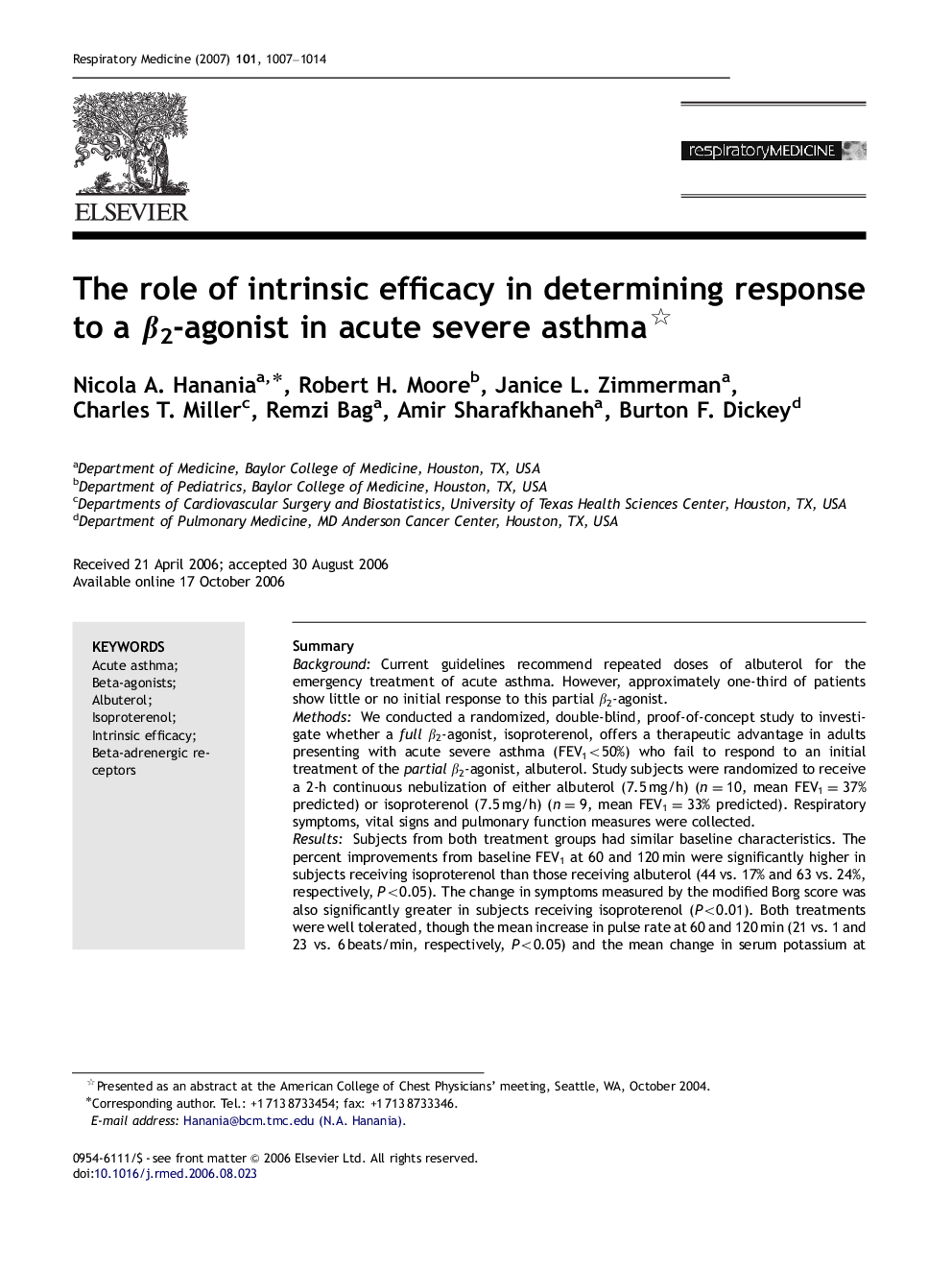| Article ID | Journal | Published Year | Pages | File Type |
|---|---|---|---|---|
| 4211878 | Respiratory Medicine | 2007 | 8 Pages |
SummaryBackgroundCurrent guidelines recommend repeated doses of albuterol for the emergency treatment of acute asthma. However, approximately one-third of patients show little or no initial response to this partial β2-agonist.MethodsWe conducted a randomized, double-blind, proof-of-concept study to investigate whether a full β2-agonist, isoproterenol, offers a therapeutic advantage in adults presenting with acute severe asthma (FEV1<50%) who fail to respond to an initial treatment of the partial β2-agonist, albuterol. Study subjects were randomized to receive a 2-h continuous nebulization of either albuterol (7.5 mg/h) (n=10, mean FEV1=37% predicted) or isoproterenol (7.5 mg/h) (n=9, mean FEV1=33% predicted). Respiratory symptoms, vital signs and pulmonary function measures were collected.ResultsSubjects from both treatment groups had similar baseline characteristics. The percent improvements from baseline FEV1 at 60 and 120 min were significantly higher in subjects receiving isoproterenol than those receiving albuterol (44 vs. 17% and 63 vs. 24%, respectively, P<0.05). The change in symptoms measured by the modified Borg score was also significantly greater in subjects receiving isoproterenol (P<0.01). Both treatments were well tolerated, though the mean increase in pulse rate at 60 and 120 min (21 vs. 1 and 23 vs. 6 beats/min, respectively, P<0.05) and the mean change in serum potassium at 120 min (−0.52 vs. −0.07 meq/L, P<0.05) from baseline were significantly greater in the isoproterenol group.ConclusionsOur data suggest that in subjects presenting with acute severe asthma who fail to show an initial response to albuterol, the use of a β2-agonist of higher intrinsic efficacy can be more effective in improving lung function and symptoms.
